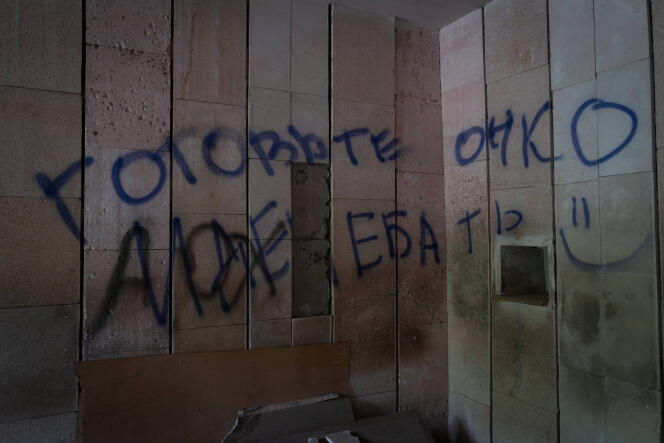“Twice in the same river. Putin’s war against women” (Samaan virtaan), by Sofi Oksanen, translated from Finnish by Sébastien Cagnoli, Stock, “Essay”, 302 p., €21.90, digital €16.
The observation is atrociously banal. From the Second World War to the Hamas attacks against Israel on October 7, sexual violence is an invariable component of all forms of persecution of civilians that accompany wars. It would be insufficient to say that Russia, in Ukraine, is no exception: journalistic and judicial investigations have established such a massive use of rape as a weapon since the start of the invasion that it is impossible not to see in him a central dimension of Russian strategy.
It is from this angle that the Finnish writer Sofi Oksanen approaches this reality in the essay she has just devoted to “Putin’s war on women”, Twice in the same river. What does the fact that sexual violence not only occurs on a large scale, but is encouraged by those in power, reveal about Russia’s intentions? The author of Purge (Stock, 2010), by drawing this thread methodically, from abundant documentation, finely implemented, leads to a series of keys to interpretation of which this entire book, sparkling with rage and harsh lucidity, demonstrates the fruitfulness .
She does this, first, through a figure who will return, with discreet insistence, throughout the text: her great-aunt, who no longer spoke, except to say two words, and them alone, until her dead, “Jah, ärä”, “yes, stop”, in Estonian. Shortly after the annexation of Estonia by the USSR in 1944, she spent a night in the hands of the KGB, tortured, raped, reduced to these two words, and to a life of confinement. The parents of the future novelist talked about it as they talked about Estonia, which they had managed to leave for Finland: in the privacy of their home. Outside, none of this should exist. The eradication of the Baltic state was complete. That of the great aunt too.
Oksanen’s way of linking the two, the erasure of peoples and the massacre of a life, sums up the power of the book. We cannot understand Russia’s abuses without seeing that they continue something. The systematization of rape aims, everywhere, at the destruction of the enemy people. What specifies its Russian usage is due to a definition of the enemy whose history, which must be described as colonial – this annihilation which is both symbolic and concrete being a constant feature of colonialism – is ancient: the enemy is the enemy because he does not want to recognize that he has no reality outside of his very submission.
You have 45% of this article left to read. The rest is reserved for subscribers.
